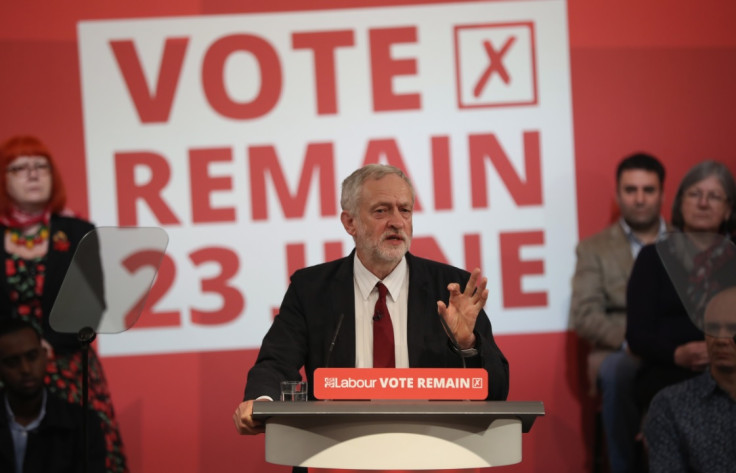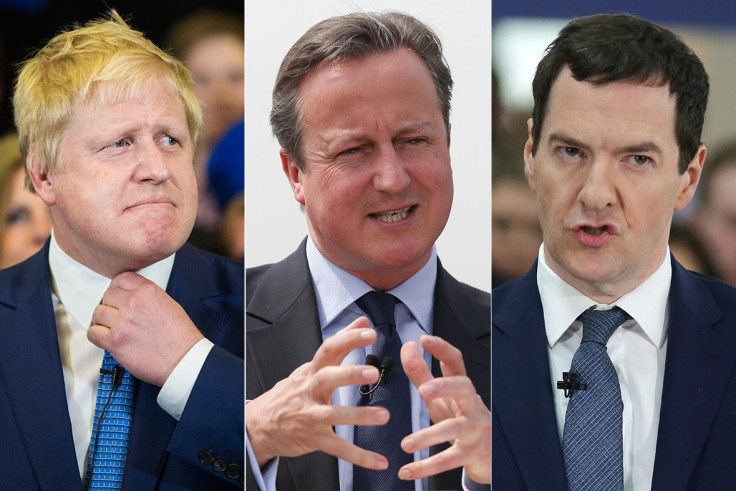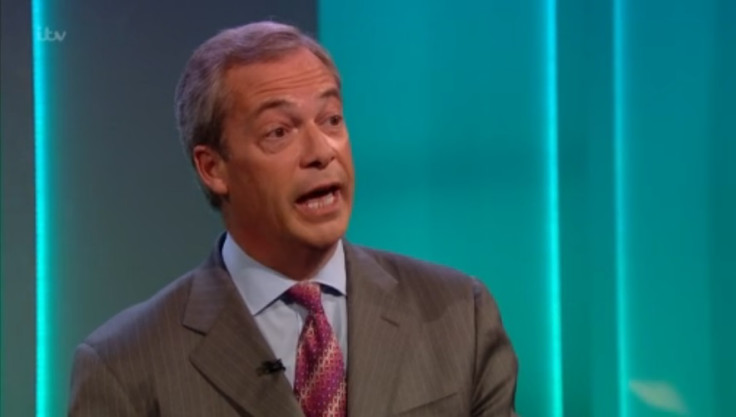Labour must get the Remain message out – before it's too late

As a rule, accusations of "bias" levelled against the BBC are best ignored. This should be obvious from where they usually emanate. When both the communist-left and the Ukip-right are apt to claim that the BBC is conspiring against them, the corporation should probably pat itself on the back. Those after all are precisely the demographics that an impartial broadcasting outfit ought to nark off.
But occasionally subtler forms of BBC bias do exist. The European referendum campaign is a case in point. A recent study by Loughborough University of the campaign found that it was dominated by Tory men. Boris Johnson, David Cameron and George Osborne were the three politicians most frequently featured in the media during the referendum campaign, resulting in an effectively "blue on blue" contest to decide Britain's future.
Usually quick to lash together an anti-BBC petition, supporters of the Labour leader Jeremy Corbyn have understandably been more reluctant to accuse the media of favouritism in the case of the referendum because Labour's lethargy is of their leader's own making. Corbyn's heart is just not in it. His supporters know this as well as he does.
In her biography of the Labour leader, journalist Rosa Prince recounted how Jeremy Corbyn's political views were arrested in the 1970s. "I have personally always seen Jeremy as a Peter Pan figure, just not a grown-up," a friend of Corbyn told the author. Put another way, we are expected to believe in an overnight conversion to pan-Europeanism when every other one of Corbyn's political ideas were formed back when Harold Wilson was prime minister. The first consequence of Labour's languid support for Europe is confusion: half of Labour's traditional voters are not even aware of the party's position on Brexit.
All of this poses a problem for the Remain camp because the result of this month's referendum will hinge largely on how Labour supporters choose to vote. A cursory look at the maths makes this clear. A big section of the Tory vote wish Nigel Farage rather than David Cameron was their leader. Like the Labour activists who execrate Tony Blair, they see Cameron as a usurper, an aberration who they will tolerate only as long as he is winning – and barely even then. Many of those who are more enamoured with Cameron will still cast a vote for Brexit. The PM himself was viewed as a Eurosceptic when his became Tory leader in 2005, pulling Tory MEPs out of the centre-right European People's Party grouping in the European Parliament once elected.

The Remain campaign therefore needs a dose of social democracy. Yet it is the anti-social democracy of Remain's affluent liberals that is in the ascendant. At present the referendum campaign is blue-on-blue and flanked by the most rapacious elements of big business. The paucity of effective left-wing voices is evidenced by the Brexit camp's tactical adoption of left-wing garb. Both Michael Gove and Boris Johnson have suddenly expressed a fondness for public services – apparently threatened by our membership of the EU. Cats might just as well be claiming to love water, yet the space for the two big Tory beasts to move into has been largely vacated by the Remain camp.
The sheer extent to which left-wing voices have been marginalised is apparent in the increasing focus of the referendum campaign on immigration; or to be more precise, in the solutions posited as answers to the challenges posed by immigration. Neo-liberal and authoritarian discourse is ubiquitous. Thus while the Remain camp talks up the benefits of cheap labour or brushes aside its impact on British workers, the Brexiters play up the dangers of roving Muslim hoards flooding to Britain from Turkey and Syria.
You either let the market rip or you pull up the drawbridge. Any social democratic acknowledgement of the benefits of a tighter labour market – the sort of acknowledgement that eschews dog-whistling – is completely absent. At a glance it seems to boil down to xenophobia or profits for big business. It even fell to Nigel Farage yesterday evening to argue that there is more to life than GDP.
The Boris Johnsons, Michael Goves and Nigel Farages of the world are unrepentant Thatcherites who have little to offer workers other than isolationism and xenophobia. They pose as friends of the working man and woman while conspiring to tear up the modest rights conferred on workers by Europe.
At one point Remain had a healthy lead in the polls; however a slew of recent polls has given the Leave camp a slim advantage. The former's side-lining of the social democratic left could yet be its undoing. The Remain campaign has little that is constructive to say to British workers undercut by Eastern European labour other than "look over there at that lovely big GDP figure". Indeed, early in the campaign the chair of Britain Stronger in Europe, Stuart Rose, boasted that lower wages were a reason to support staying in the European Union. If you run this sort of campaign, you will invariably repel many working class voters.
The Boris Johnsons, Michael Goves and Nigel Farages of the world are unrepentant Thatcherites who have little to offer workers other than isolationism and xenophobia. They pose as friends of the working man and woman while conspiring to tear up the modest rights conferred on workers by Europe. Indeed, any short-term wage increase for low-paid workers would be more than offset by the loss of EU-enforced rights – as well as by the broader damage done to the British economy – in the event of Brexit.

Yet set against the gruesome crew of right-wing Brexiteers, the liberal Remain camp represents that part of the left which long-ago abandoned a working class which failed to live up to 20th century socialist expectations. Like a bored lover, it moved on to groups deemed more deserving of its support. The fly in the ointment is the electoral arithmetic; progressives still need the working class even if the former has tried to shed the latter like a snake sheds its skin.
Waving a shiny "UK PLC" balance sheet in the faces of browbeaten cogs in Britain's low pay economy would be a high risk strategy at the best of times. It is especially unwise when there are plausible social democratic answers to voter concerns about things like immigration. Yet these putative answers require both the empowerment of the trade unions – anathema to the likes of Stuart Rose – and a proper engagement with working class disquiet over immigration. Communicating them at all requires a social democratic campaign to stay in Europe as well as a liberal one.
A Brexit would ultimately hurt most British workers. And yet, as the Russian Revolutionary and writer Victor Serge once wrote, if there are no more worthwhile banners, people will start to march behind worthless ones. The Remain campaign would do well to remember this – before it's too late.
© Copyright IBTimes 2025. All rights reserved.






















